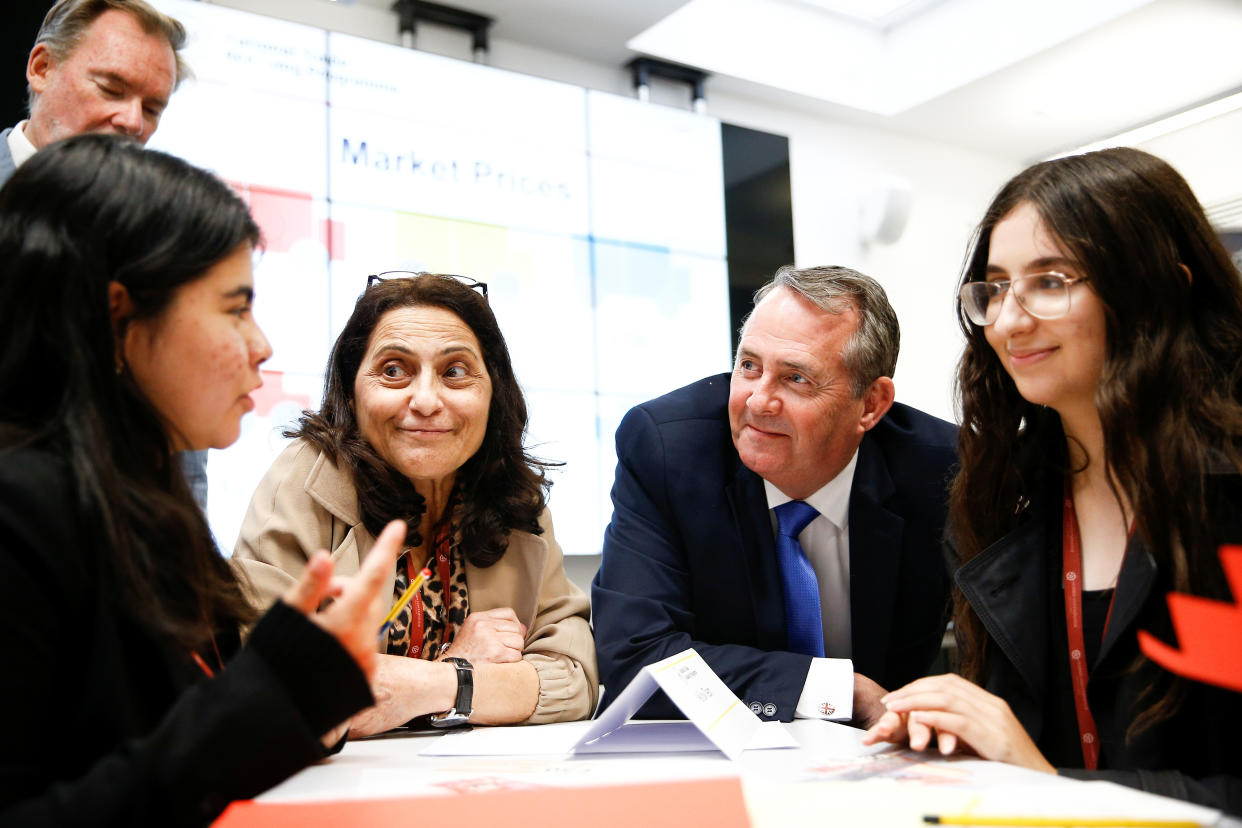The UK government is recruiting for trade negotiators in schools

As the dust settled on the referendum on the decision to leave the European Union in June 2016, officials began to realise Britain could soon be all on its own negotiating trade deals outside the EU.
A mad dash to find top talent began, with ministers admitting the British government had virtually no trade negotiators and experts as EU staff had handled trade talks for decades.
Three years later, the government has announced plans to recruit teenagers to join its trade teams, in a move it paints as an investment in the future rather than a desperate last-ditch bid to fill posts.
The department for international trade, launched in 2016 to plan for future trade talks and promote UK exports, has unveiled a two-year training scheme to skill up a new generation of trade advisors and negotiators.
READ MORE: Campaigners blamed for Brexit party newspaper in Morrisons store
The scheme includes a six-month posting in a UK trade team abroad, with a salary of around £30,000 ($37,600).
Anyone looking to switch career is also encouraged to apply, as well as 18-year-olds leaving education, with degrees not required.
Trade minister Liam Fox told Reuters: "I wanted young people in particular to look at the world of trade and say 'that is a profession I would like to go into, that is something I would like to do as a career.”
"As we leave the European Union and take up trade in our own right as a policy, we have had to develop all the skills to be able to do that.”
Chief trade negotiation advisor Crawford Falconer denied the scheme was intended to fill gaps in the UK’s trade teams, saying Britain had “plenty” of talent but needed more, younger and more diverse candidates.

